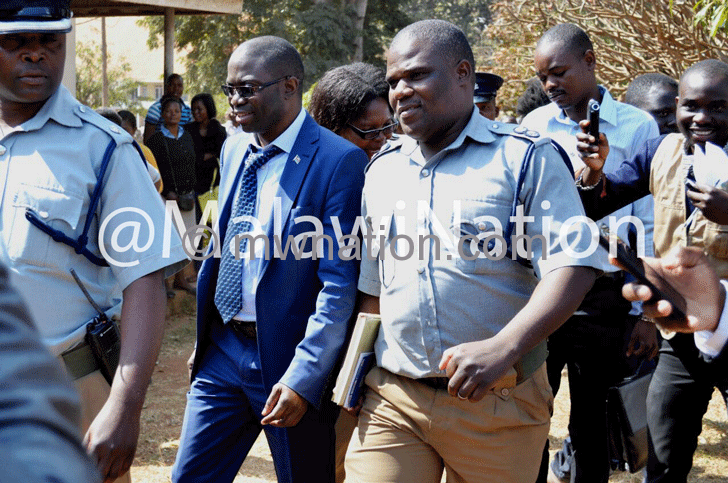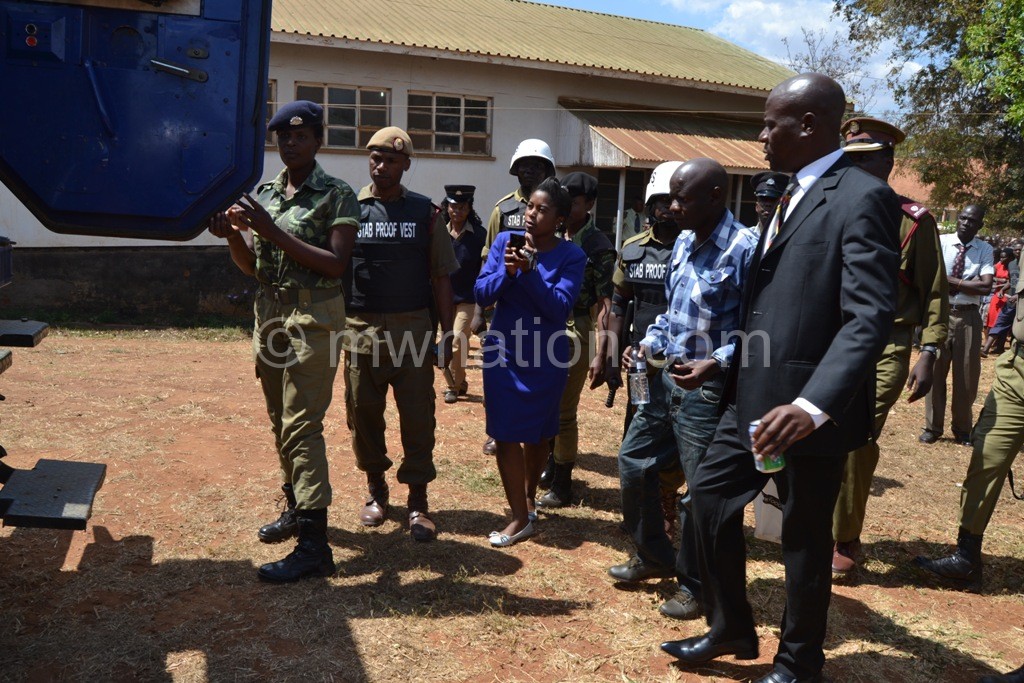Another year of judicial recusal requests, rebuffs
The year 2017 was fascinating in the country’s courts. Not because of the maizegate case that involved a senior and authoritative Democratic Progressive Party (DPP) member George Chaponda. Not even because thousands of people failed to access justice due to judicial industrial actions.
But the frequent applications for presiding judges and magistrates to recuse themselves from hearing certain proceedings made court coverage exciting.

Interestingly, though, most of the applications came amid persistent calls from all the parties to have speedy trials of the cases.
The magistrates’ courts, High Court as well as the Supreme Court of Appeal all had their fair share of the recusal applications.
But perhaps the high-status requests involved Justice Dustan Mwaungulu of the Supreme Court and Blantyre chief resident magistrate Simeon Mdeza.
In April, the State took Justice Mwaungulu by surprise when, through the Director of Public Prosecution (DPP) Mary Kachale, it asked him to stop hearing a bail application case for convicted former minister of Justice and Constitutional Affairs Ralph Kasambara, Pika Manondo and MacDonald Kumwembe.
The trio was convicted in August 2016 after being found guilty of conspiracy and attempt to murder former Ministry of Finance budget director Paul Mphwiyo at his Area 43 residence in Lilongwe in September 2013.

The DPP said they had filed for recusal because Justice Mwaungulu’s judgement “may not be impartial” as he had already taken a position on the matter.
She told reporters in an interview after her application that Justice Mwaungulu commented on the case negatively through the Malawi Law Society (MLS) Google group chat, as such, the State felt he was not capable of hearing it.
Justice Mwaungulu was alleged to have faulted a bail application ruling by the High Court in the case of Kumwembe versus the Republic.
In her submissions, Kachale argued that by publicly commenting on the matter Justice Mwaungulu had breached the judicial code of conduct which does not allow judges to comment on cases that are pending in court.
She argued: “We are applying for the recusal because there is reasonable apprehension of bias.”
The DPP also claimed that in another ruling made in January involving Yamikani Letasi against the Republic, Justice Mwaungulu also argued disapprovingly about the same case of Kumwembe.
Kasambara is serving 13 years imprisonment while Manondo and Kumwembe were slapped with 15 years each.
Fast forward to November but in the maizegate case. The State, through Anti-Corruption Bureau (ACB) lawyers, filed a motion for magistrate Mdeza to recuse himself from further hearing the proceedings.
Additionally, the State applied for the case transfer to the High Court. They argued Mdeza made a statement that favoured the sincerity of Transglobe.
Besides Chaponda, a former minister of Agriculture, Irrigation and Water Development, Rashid Tayub, one of Transglobe , is another accused person.
The two were arrested by ACB in July this year alongside Grace Mijiga-Mhango, chairperson of Grain Traders and Processors Association of Malawi (GTPA), on suspicion of fraud in the Zambia procurement deal.
According to lead State counsel, Macmillan Chakhala, during a closed-door meeting Mdeza purportedly stated that Transglobe was “a very honest taxpayer” as such the State felt he could not ably adjudicate over the matter.
Perhaps another recusal to be singled out involved Karonga first grade magistrate Thabo Chakaka Nyirenda, in September.
Monangi Mwayisunga, through his lawyer George Kadzipatike, asked Nyirenda to stop hearing a case in which his cousin, Thabo Chakaka Nyirenda was State prosecutor.
Mwayisunga was accused of possessing fake foreign currency. However, his lawyer argued that even if the court delivered judgement based on merits “either myself or the State may be dissatisfied thinking that the court has not been impartial” due to the involvement of a relative as prosecutor.
The principle of judicial recusal states that a judge or magistrate may recuse himself or herself from trial if he or she decides that it is not proper for him or her to hear the case.
And indeed in all the three scenarios, none of the law lords concluded it was inappropriate to continue presiding over the proceedings. All the criminal cases are still running.
Sitting as a single judge, Mwaungulu dismissed the application based on Section 9 of the Constitution, among other documents, by arguing the DPP never proved that his conduct amounted to recusal from the case.
“This is, therefore, not a case of automatic disqualification or recusal. At the most it is a case of apprehension or possibility of bias. In this respect, therefore, there must be proof of conduct for such apprehension or possibility… The application for recusal is, therefore, refused,” said Mwaungulu who took two hours and 31 minutes reading his 47-paged ruling.
Similarly, Mdeza declined to recuse himself arguing he did not remember making the alleged statement as cited by the State.
Further, he said he did not believe his alleged conduct had real possibility of biasness and the State was only geared at delaying the matter.
For magistrate Nyirenda, he dismissed the application on grounds that his blood relationship with the prosecutor was not reason enough to compromise his independence.





